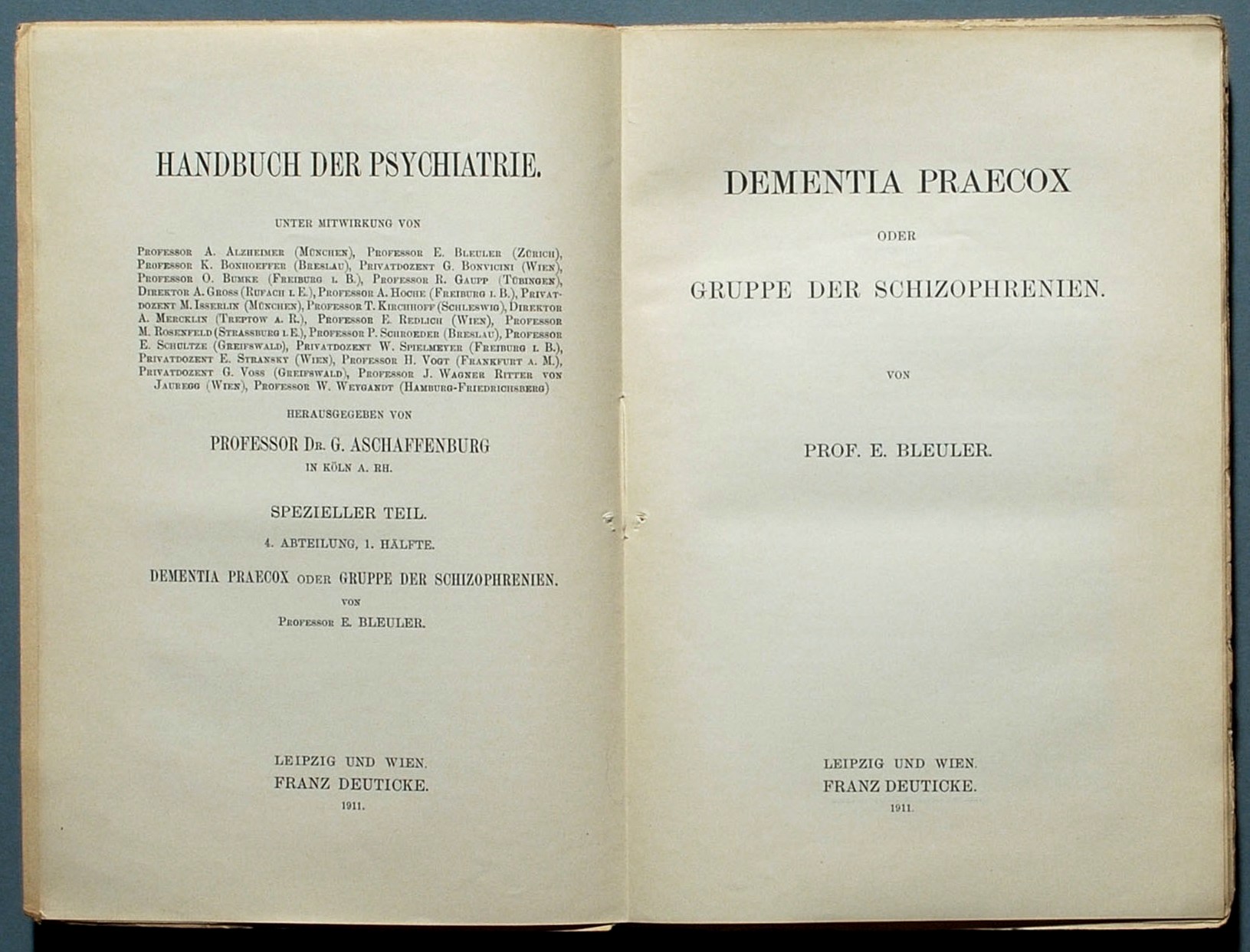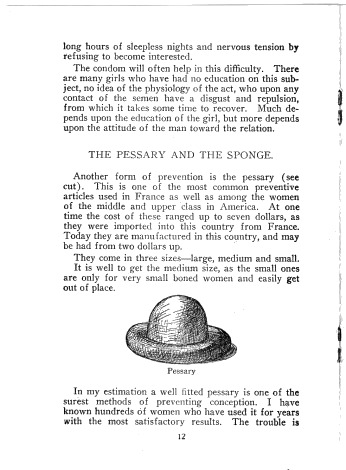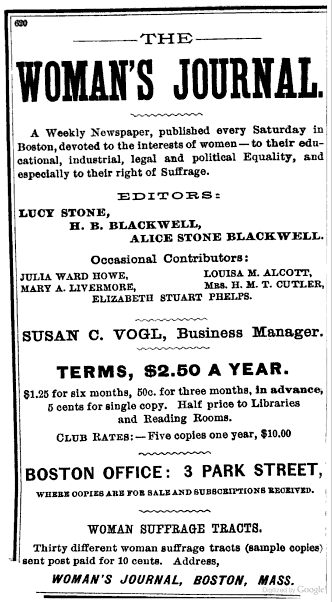|
Katharine Dexter McCormick
Katharine Dexter McCormick (August 27, 1875 – December 28, 1967) was a U.S. suffragist, philanthropist and, after her husband's death, heir to a substantial part of the McCormick family fortune. She funded most of the research necessary to develop the first birth control pill. Early life and education Katharine Dexter was born on August 27, 1875, in Dexter, Michigan, in her grandparents' mansion, Gordon Hall, and grew up in Chicago where her father, Wirt Dexter (a descendent of Samuel Dexter), was a prominent lawyer. Following the early death of her father of a heart attack at age 57 when she was 14 years old, she and her mother Josephine moved to Boston in 1890. Four years later, her brother Samuel died of meningitis at age 25. Katharine graduated from the Massachusetts Institute of Technology in 1904, earning a BSc in biology. Marriage to Stanley McCormick She planned to attend medical school, but instead married Stanley Robert McCormick, the youngest son of Cyru ... [...More Info...] [...Related Items...] OR: [Wikipedia] [Google] [Baidu] |
Riven Rock, Montecito
Riven Rock is a residential subdivision in the unincorporated area of Montecito, California near Santa Barbara, California. The Riven Rock subdivision is located on the former Riven Rock Estate. History The Riven Rock Estate was owned by the McCormick family, who purchased the 84 acre property in 1896 and in 1898 built a large two-story Mission Revival home on the premises. The estate's name came from an oak tree near the main gate, which was growing out of and had split a large boulder. It was where Stanley McCormick, the youngest child of Cyrus Hall McCormick and Nancy Fowler McCormick, and husband of Katharine McCormick, was confined for much of his life as he suffered from schizophrenia. After the 1925 Santa Barbara earthquake the main house was demolished. After Stanley McCormick's death in 1947, Katharine sold the estate in 1949 to one real estate developer, who sold it to another developer in 1950. The second one subdivided the estate into 34 smaller parcels and put t ... [...More Info...] [...Related Items...] OR: [Wikipedia] [Google] [Baidu] |
Dexter, Michigan
Dexter is a city in Washtenaw County in the U.S. state of Michigan. The population was 4,067 at the 2010 census. Dexter Township is located to the northwest and does not border the city, and the two are administered autonomously. The township and city are named for Samuel William Dexter, the founder of the village and the first circuit judge of Washtenaw County. History The area was first settled in 1824, 13 years before Michigan became a state, when land speculator Samuel W. Dexter purchased a large tract of land and originated the village. It was known as "Mill Creek Settlement" until the village was platted in 1830, when its name was officially changed to Dexter. Mill Creek and the Huron River, which form much of the western and northeastern boundaries of the city, respectively, have long been valuable resources to Dexter. A sawmill was built in 1827, a woolen mill in 1838, a grist mill in 1844, and a cider mill in 1886. After being appointed County Court Justice in ... [...More Info...] [...Related Items...] OR: [Wikipedia] [Google] [Baidu] |
Dementia Praecox
Dementia praecox (meaning a "premature dementia" or "precocious madness") is a disused psychiatric diagnosis that originally designated a chronic, deteriorating psychotic disorder characterized by rapid cognitive disintegration, usually beginning in the late teens or early adulthood. Over the years, the term ''dementia praecox'' was gradually replaced by ''schizophrenia'', which remains in current diagnostic use. The term ''dementia praecox'' was first used in 1891 by Arnold Pick (1851–1924), a professor of psychiatry at Charles University in Prague. In a brief clinical report, he described a person with a psychotic disorder resembling "hebephrenia" (schizophrenia). German psychiatrist Emil Kraepelin (1856–1926) popularised the term ''dementia praecox'' in his first detailed textbook descriptions of a condition that eventually became a different disease concept later relabeled as ''schizophrenia''. Kraepelin reduced the complex psychiatric taxonomies of the nineteenth centur ... [...More Info...] [...Related Items...] OR: [Wikipedia] [Google] [Baidu] |
Margaret Sanger
Margaret Higgins Sanger (born Margaret Louise Higgins; September 14, 1879September 6, 1966), also known as Margaret Sanger Slee, was an American birth control activist, sex educator, writer, and nurse. Sanger popularized the term "birth control", opened the first birth control clinic in the United States, and established organizations that evolved into the Planned Parenthood Federation of America. Sanger used her writings and speeches primarily to promote her way of thinking. She was prosecuted for her book ''Family Limitation'' under the Comstock Act in 1914. She feared the consequences of her writings, so she fled to Britain until public opinion had quieted. Sanger's efforts contributed to several judicial cases that helped legalize contraception in the United States. Due to her connection with Planned Parenthood, Sanger is frequently criticized by opponents of abortion. However, Sanger drew a sharp distinction between birth control and abortion and was opposed to abortions th ... [...More Info...] [...Related Items...] OR: [Wikipedia] [Google] [Baidu] |
Mary Dennett
Mary Coffin Ware Dennett (April 4, 1872 – July 25, 1947) was an American women's rights activist, pacifist, homeopathic advocate, and pioneer in the areas of birth control, sex education, and women's suffrage. She co-founded the National Birth Control League in 1915 together with Jessie Ashley and Clara Gruening Stillman. She founded the Voluntary Parenthood League, served in the National American Women's Suffrage Association, co-founded the Twilight Sleep Association, and wrote a famous pamphlet on sex education and birth control. A famous legal case against her eventually became the catalyst for overturning the Comstock laws. Biography Early life Mary was born April 4, 1872 in her hometown Worcester, Massachusetts. Mary Coffin Ware was the second child of four born to George and Vonie Ware. Mary was a precocious, talkative, and assertive child, "scolding er older brotherfor striking her, often quoting the Bible." At age 10, her father died of cancer. Her mother s ... [...More Info...] [...Related Items...] OR: [Wikipedia] [Google] [Baidu] |
Carrie Chapman Catt
Carrie Chapman Catt (; January 9, 1859 Fowler, p. 3 – March 9, 1947) was an American women's suffrage leader who campaigned for the Nineteenth Amendment to the United States Constitution, which gave U.S. women the right to vote in 1920. Catt served as president of the National American Woman Suffrage Association from 1900 to 1904 and 1915 to 1920. She founded the League of Women Voters in 1920 and the International Woman Suffrage Alliance in 1904, Van Voris, pp. 59–63 which was later named International Alliance of Women. She "led an army of voteless women in 1919 to pressure Congress to pass the constitutional amendment giving them the right to vote and convinced state legislatures to ratify it in 1920" and "was one of the best-known women in the United States in the first half of the twentieth century and was on all lists of famous American women." Van Voris, p. vii Early life Carrie Clinton Lane was born on January 9, 1859, in Ripon, Wisconsin, the daughter of Maria Lo ... [...More Info...] [...Related Items...] OR: [Wikipedia] [Google] [Baidu] |
Woman's Journal
''Woman's Journal'' was an American women's rights periodical published from 1870 to 1931. It was founded in 1870 in Boston, Massachusetts, by Lucy Stone and her husband Henry Browne Blackwell as a weekly newspaper. In 1917 it was purchased by Carrie Chapman Catt's Leslie Woman Suffrage Commission and merged with ''The Woman Voter'' and ''National Suffrage News'' to become known as ''The Woman Citizen''. It served as the official organ of the National American Woman Suffrage Association until 1920, when the organization was reformed as the League of Women Voters, and the Nineteenth Amendment to the United States Constitution was passed granting women the right to vote. Publication of ''Woman Citizen'' slowed from weekly, to bi-weekly, to monthly. In 1927, it was renamed ''The Woman's Journal''. It ceased publication in June 1931. History ''Woman's Journal'' was founded in 1870 in Boston, Massachusetts, by Lucy Stone and her husband Henry Browne Blackwell as a weekly new ... [...More Info...] [...Related Items...] OR: [Wikipedia] [Google] [Baidu] |
National American Woman Suffrage Association
The National American Woman Suffrage Association (NAWSA) was an organization formed on February 18, 1890, to advocate in favor of women's suffrage in the United States. It was created by the merger of two existing organizations, the National Woman Suffrage Association (NWSA) and the American Woman Suffrage Association (AWSA). Its membership, which was about seven thousand at the time it was formed, eventually increased to two million, making it the largest voluntary organization in the nation. It played a pivotal role in the passing of the Nineteenth Amendment to the United States Constitution, which in 1920 guaranteed women's right to vote. Susan B. Anthony, a long-time leader in the suffrage movement, was the dominant figure in the newly formed NAWSA. Carrie Chapman Catt, who became president after Anthony retired in 1900, implemented a strategy of recruiting wealthy members of the rapidly growing women's club movement, whose time, money and experience could help build the ... [...More Info...] [...Related Items...] OR: [Wikipedia] [Google] [Baidu] |
Massachusetts
Massachusetts (Massachusett language, Massachusett: ''Muhsachuweesut [Massachusett writing systems, məhswatʃəwiːsət],'' English: , ), officially the Commonwealth of Massachusetts, is the most populous U.S. state, state in the New England region of the Northeastern United States. It borders on the Atlantic Ocean and Gulf of Maine to the east, Connecticut and Rhode Island to the south, New Hampshire and Vermont to the north, and New York (state), New York to the west. The state's capital and List of municipalities in Massachusetts, most populous city, as well as its cultural and financial center, is Boston. Massachusetts is also home to the urban area, urban core of Greater Boston, the largest metropolitan area in New England and a region profoundly influential upon American History of the United States, history, academia, and the Economy of the United States, research economy. Originally dependent on agriculture, fishing, and trade. Massachusetts was transformed into a manuf ... [...More Info...] [...Related Items...] OR: [Wikipedia] [Google] [Baidu] |
Woman Suffrage
Women's suffrage is the women's rights, right of women to Suffrage, vote in elections. Beginning in the start of the 18th century, some people sought to change voting laws to allow women to vote. Liberal political parties would go on to grant women the right to vote, increasing the number of those parties' potential constituencies. National and international organizations formed to coordinate efforts towards women voting, especially the International Alliance of Women, International Woman Suffrage Alliance (founded in 1904 in Berlin, Germany). Many instances occurred in recent centuries where women were selectively given, then stripped of, the right to vote. The first place in the world to award and maintain women's suffrage was New Jersey in 1776 (though in 1807 this was reverted so that only white men could vote). The first province to ''continuously'' allow women to vote was Pitcairn Islands in 1838, and the first sovereign nation was Norway in 1913, as the Kingdom of Haw ... [...More Info...] [...Related Items...] OR: [Wikipedia] [Google] [Baidu] |
Emil Kraepelin
Emil Wilhelm Georg Magnus Kraepelin (; ; 15 February 1856 – 7 October 1926) was a German psychiatrist. H. J. Eysenck's ''Encyclopedia of Psychology'' identifies him as the founder of modern scientific psychiatry, psychopharmacology and psychiatric genetics. Kraepelin believed the chief origin of psychiatric disease to be biological and genetic malfunction. His theories dominated psychiatry at the start of the 20th century and, despite the later psychodynamic influence of Sigmund Freud and his disciples, enjoyed a revival at century's end. While he proclaimed his own high clinical standards of gathering information "by means of expert analysis of individual cases", he also drew on reported observations of officials not trained in psychiatry. His textbooks do not contain detailed case histories of individuals but mosaic-like compilations of typical statements and behaviors from patients with a specific diagnosis. He has been described as "a scientific manager" and "a politi ... [...More Info...] [...Related Items...] OR: [Wikipedia] [Google] [Baidu] |






